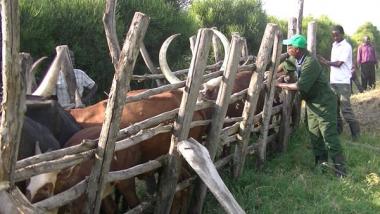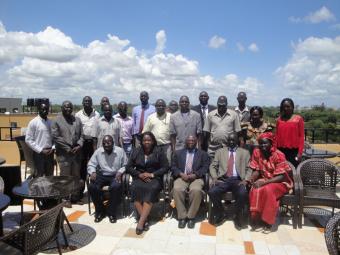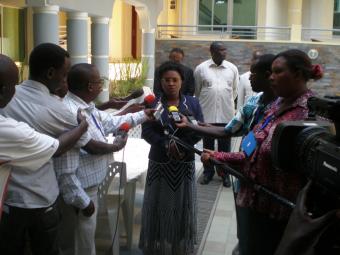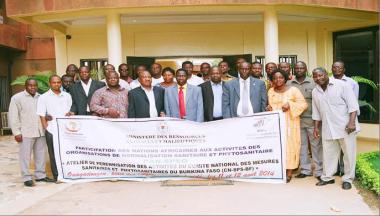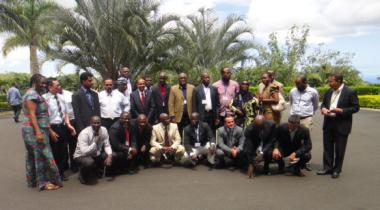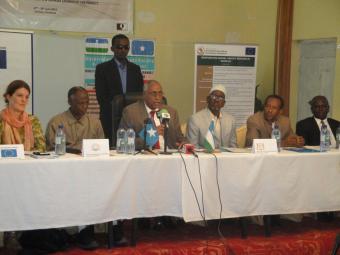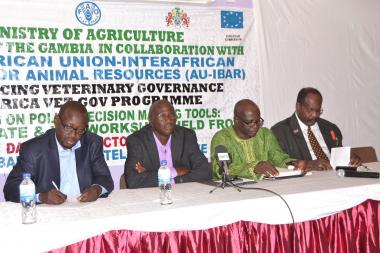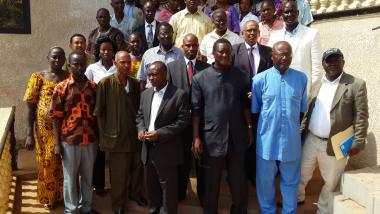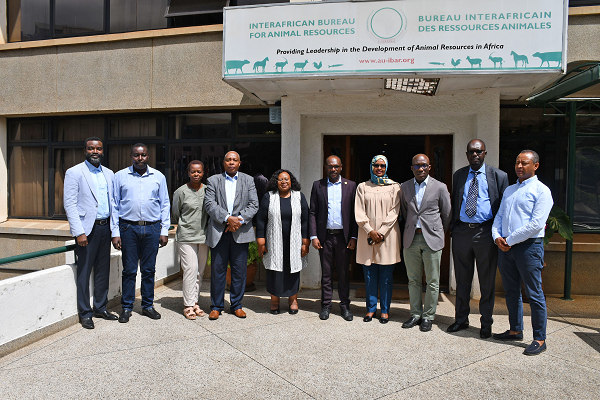
On May 17, 2024, AU-IBAR and the African Union Pan African Veterinary Vaccine Centre (AU-PANVAC) held an inter-coordination meeting at the AU-IBAR. The primary aim of this meeting was to establish and consolidate sustainable coordination mechanisms to tackle critical animal health issues across African Union Member States (AU MS). The meeting brought together key staff from both organizations to discuss strategies and initiatives to enhance animal health and address transboundary livestock diseases. The meeting was co-chaired by the respective directors, Dr. Huyam Salih (AU-IBAR) and Dr. Charles Bodjo (AU-PANVAC).
One of the key objectives of the meeting was to establish robust coordination mechanisms between AU-IBAR and AU-PANVAC. This collaboration is essential for effectively addressing animal health issues, interpreting the Nagoya Protocol, and overcoming challenges in controlling transboundary livestock diseases. The discussion also included a review of the African Union's position within global frameworks for controlling Transboundary Animal Diseases (TADs), particularly through the Global Framework for the Progressive Control of Transboundary Animal Diseases (GF-TADs). The joint support for projects, including those proposed by the International Atomic Energy Agency (IAEA), was emphasized as crucial for controlling diseases such as Peste des Petits Ruminants (PPR), rabies, contagious bovine pleuropneumonia (CBPP), African animal trypanosomiasis (AAT), and African swine fever (ASF).
The eradication of PPR was a major focus of the meeting. Participants discussed strategies to maximize and scale up efforts towards PPR eradication, reinforcing the African Union's leadership in this domain. The discussions included an evaluation of Africa's capacity for PPR vaccine production, distribution, and delivery. Public-private partnership (PPP) models for vaccine production were explored as potential strategies to enhance vaccine availability and deployment. The meeting also highlighted the need for a unified stance on the use of local vaccine strains to ensure consistency and efficacy in vaccine deployment across the continent.
Another significant outcome of the meeting was the proposal to establish a network of national regulators for veterinary medicinal products. This network aims to facilitate information exchange and capacity building among regulators, ultimately enhancing the regulation and quality of veterinary medicines and vaccines. The establishment of such a network is expected to improve the overall effectiveness of veterinary medicinal products and contribute to better animal health outcomes in the region.
The meeting agenda was comprehensive, covering a range of strategic initiatives and collaborative efforts between AU-IBAR and AU-PANVAC. The session began with introductory and welcoming remarks from the directors of both organizations, followed by the introduction of participants. The directors then presented their plans and initiatives for the upcoming years, setting the stage for detailed discussions on coordination mechanisms, AU's global position on TADs control, and strategies for PPR eradication. The meeting also included discussions on formulating a common position when local vaccine strains are available and the establishment of the network of national regulators.
At the close of the the meeting, the directors of AU-IBAR and AU-PANVAC, emphasized the importance of continued collaboration and commitment to achieving the outlined objectives. The outcomes of this inter-coordination meeting are expected to significantly enhance the AU's capacity to address animal health issues, control transboundary livestock diseases, and achieve the ambitious goal of PPR eradication in Africa. Both AU-IBAR and AU-PANVAC fall the Department of Agriculture, Rural Development, Blue Economy, and Sustainable Environment (ARBE) of the African Union Commission. As sister institutions, this meeting marked a significant step towards stronger collaboration between AU-IBAR and AU-PANVAC, paving the way for improved animal health and veterinary practices across the continent.

